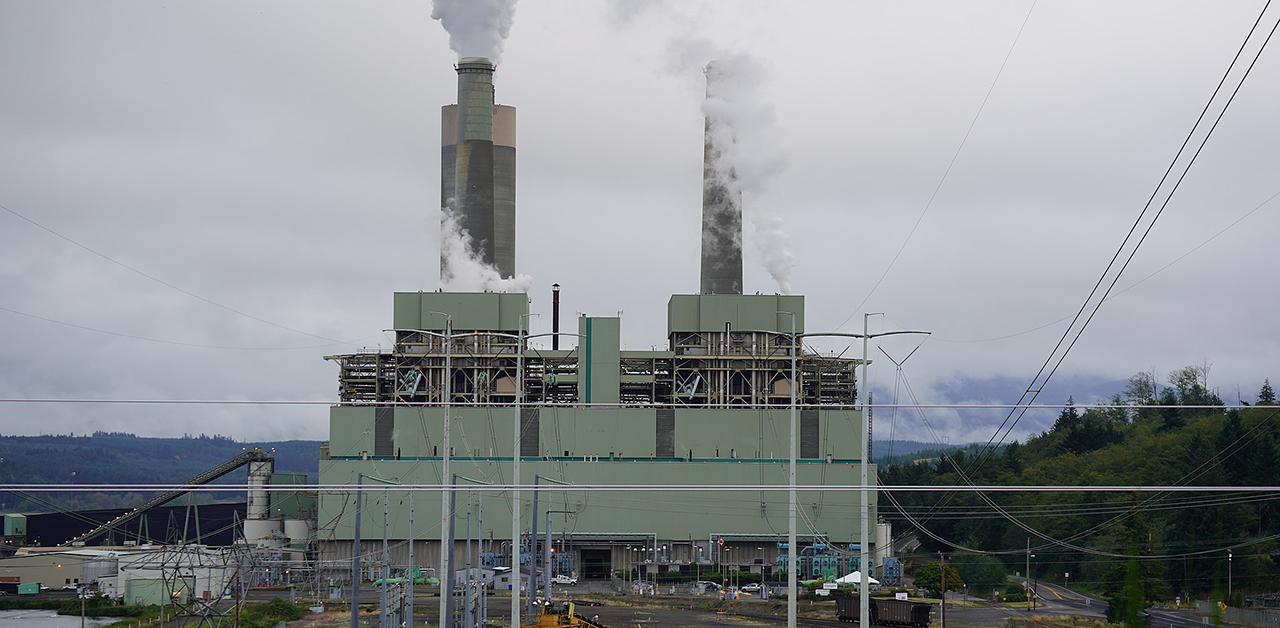U.S. Supreme Court ruling limiting power of EPA is “devastating,” climate scientist says
Jonathan Overpeck, the dean of the School for Environment and Sustainability at the University of Michigan, says there are ways to prevent global climate catastrophe, but government and industry aren’t doing enough to stop it.

The United States Supreme Court’s ruling that the Environmental Protection Agency doesn’t have the power to regulate carbon emissions deals a dramatic blow to the efforts to limit the effects of climate change.
Cutting greenhouse gas emissions was a key environmental policy for the Biden administration.
The ruling could have a chilling effect and limit the federal government’s ability to regulate.
Jonathan Overpeck, the dean of the School for Environment and Sustainability at the University of Michigan, says the Supreme Court’s decision is disastrous for America’s fight against climate change.
“The Supreme Court’s decision really should be considered an affront to Americans.,” Overpeck says. “You have in the southwest United States heat waves — the longest drought ever, the worst drought ever — a water crisis that is only growing as well as a looming agricultural crisis.
“This ruling will make it difficult to save the day, just as in Michigan, where we have heat waves and more and more flooding, and our big fluctuations in the lake levels of the Great Lakes. The Supreme Court is saying, ‘Hey, you can’t stop this.’ We know how to stop it. Just as we know how to stop the big worsening hurricane problem on the Gulf and Atlantic coasts. Sea level rise, we know how to stop it. But the Supreme Court is limiting the ability of our federal government to stop it fast enough to save the day.”
Listen: How the Supreme Court’s decision slows down the ability to address climate change.

Russ McNamara, WDET News: Are we at the point where we’re running out of time to absorb any kind of setback?
Jonathan Overpeck the dean of the School for Environment and Sustainability at the University of Michigan: We’re getting the effects of air pollution from the same fossil fuels that when burned cause climate change. Now we’re also seeing [Russian President] Vladimir Putin using fossil fuels to get the money he needs is to wage war on us and in the West. So we need to rein in the use of fossil fuels and the burning of fossil fuels. And [the SCOTUS decision] makes it a lot tougher. Nonetheless, the huge price increases we’re seeing in fossil fuels makes them quite a bit more expensive. So hopefully, economics will start to play a bigger role. But there’s no doubt that this slows down our ability to stop climate change, and all the mayhem that’s causing around the planet.
If the Supreme Court truly is hostile to federal environmental regulation, what could this mean for the Clean Water Act?
This means a lot these landmark environmental bills that were passed decades ago couldn’t imagine all of the types of pollution that could be hurting Americans at that time. So they passed laws that empowered federal agencies to act on pollution types that develop subsequently. And what the Supreme Court is saying is that that isn’t going to fly. And Congress must be specific on each and every type of pollutant, whether it’s an air pollutant hurting our health or causing climate change, or it’s a water pollutant affecting our health. So this is pretty devastating in terms of what it means for America and Americans.
Trusted, accurate, up-to-date.
WDET strives to make our journalism accessible to everyone. As a public media institution, we maintain our journalistic integrity through independent support from readers like you. If you value WDET as your source of news, music and conversation, please make a gift today.

